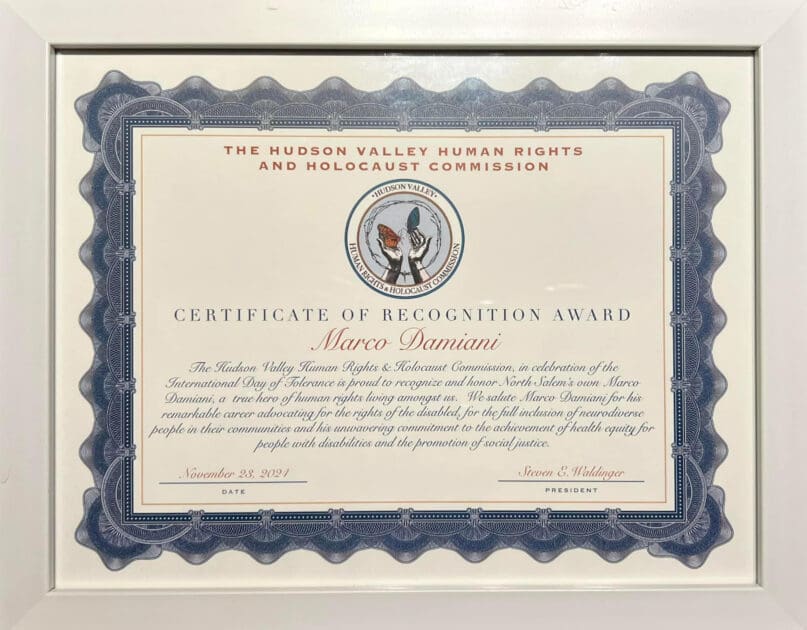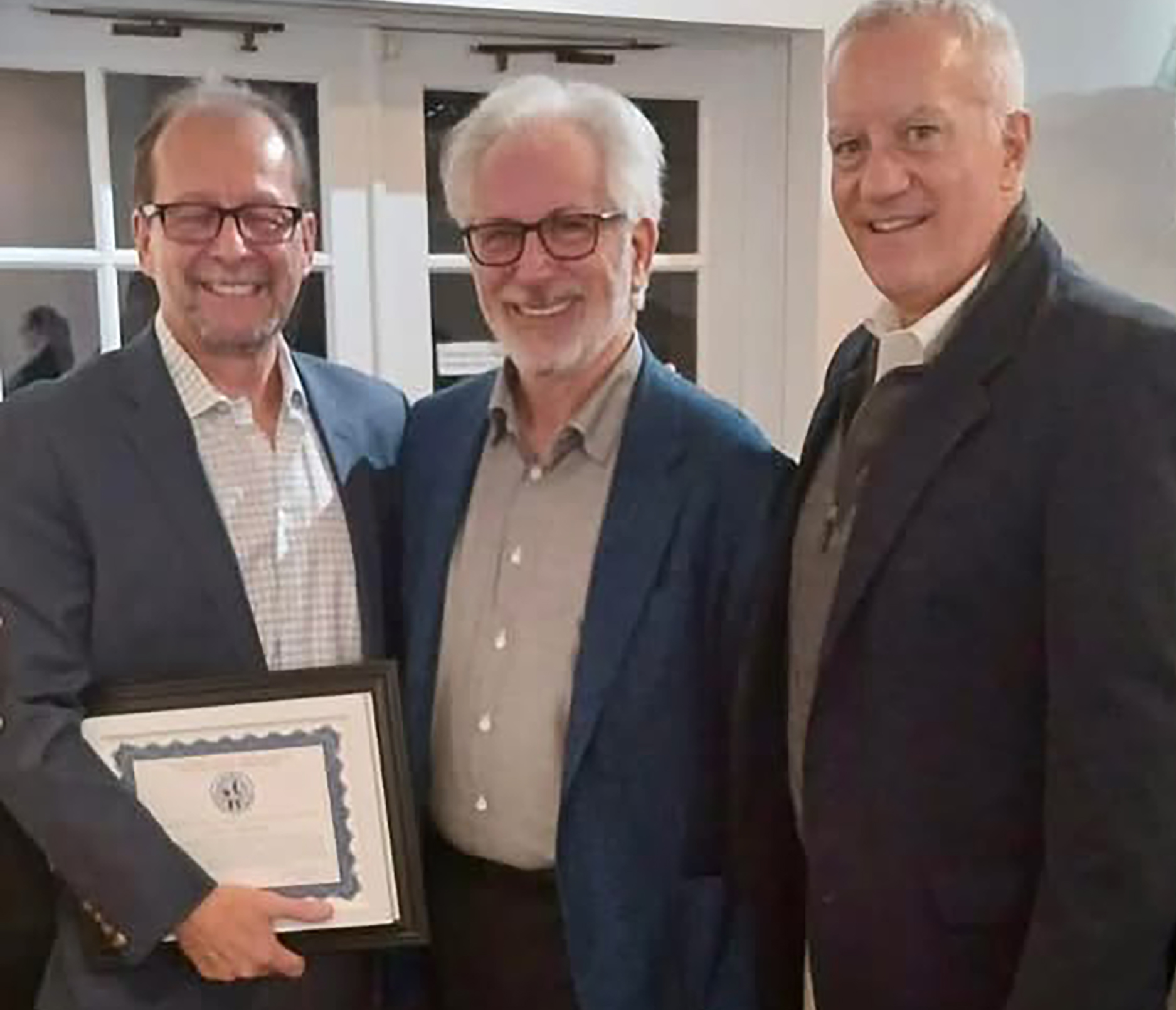Marco Damiani, CEO of AHRC NYC, received recognition from the Hudson Valley Human Rights & Holocaust Commission, celebrating “a local hero” who has dedicated his career to improving the lives of people with disabilities, their families, and the staff members who support them. The ceremony was held on November 20th at the Hammond Museum in North Salem, NY.
Marco said, “As a proud recipient of the Unsung Hero of Human Rights Award, I must say that now, more than ever, we recognize that disability rights are human rights.“
The Holocaust and People with Disabilities
Among the Holocaust’s first victims were people with disabilities. According to Holocaust Memorial Day Trust, Nazi persecution of disabled people began in 1933 with forced sterilization laws. By 1939, Hitler had signed laws approving a euthanasia initiative, known as the T4 program, to murder those deemed “unworthy of life,” according to the United States Holocaust Memorial Museum. This included children under three with illnesses or disabilities such as Down syndrome and cerebral palsy.
Following the outbreak of World War II, genocide began on a mass scale. People with disabilities were some of the first to be gassed to death as the Nazis began to perfect their killing methods. It is estimated that between 250,000 and 300,000 people with disabilities were killed in concentration camps.
AHRC NYC exists to prevent such evil from ever happening again towards people with disabilities and anyone else who may be so horribly persecuted.
Selected Remarks from Marco Damiani

“In 1939, just steps away from the large park in central Berlin, the Tiergarten, the Nazis initiated a process, that over the next several years, would result in the killing of nearly 300,000 people with disabilities and the chronically ill. These were children and adults that were seen by those in power as so different from them, that they deserved to die. Today, at that very location, sits a glorious memorial to those victims.
“Less than a decade later, in 1948, Ann Greenberg took a bold step that would revolutionize the human rights movement for people with disabilities. By refusing to institutionalize her son Jerry, and by establishing a day nursery for children with intellectual disabilities in the Bronx, she made an enduring commitment to inclusion and disability rights. That commitment lives on 75 years later, and in everything we do at AHRC NYC. While services and supports are essential to our daily work, and will remain so, we must always remember that fundamentally, the work that we do is grounded in human and civil rights.
“Thanks to the Hudson Valley Human Rights and Holocaust Commission for this generous recognition of my work, and the work of AHRC NYC.”
